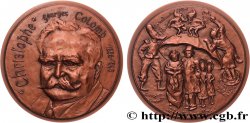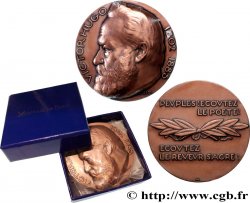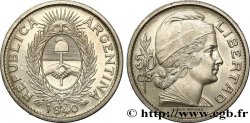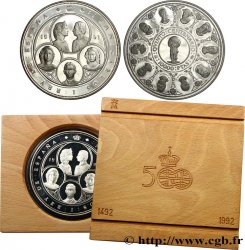Live auction - fme_724435 - LITERATURE : WRITERS - POETS Médaille, Henri Bergson
You must signin and be an approved bidder to bid, LOGIN TO BID. Accounts are subject to approval and the approval process takes place within 48 hours. Do not wait until the day a sale closes to register. Clicking on "BID" constitutes acceptance of the terms of use of cgb.fr private live auctions.
Bids must be placed in whole Euro amounts only. The sale will start closing at the time stated on the item description; any bids received at the site after the closing time will not be executed. Transmission times may vary and bids could be rejected if you wait until the last second. For further information check the Live auction FAQ
All winning bids are subject to a 18% buyer’s fee.
All winning bids are subject to a 18% buyer’s fee.
| Estimate : | 150 € |
| Price : | no bid |
| Maximum bid : | no bid |
| End of the sale : | 14 November 2023 18:33:57 |
Type : Médaille, Henri Bergson
Date: 1928
Metal : bronze
Diameter : 67,5 mm
Orientation dies : 12 h.
Engraver TURIN Pierre (1891-1968)
Weight : 151,88 g.
Edge : lisse + corne BRONZE
Puncheon : corne BRONZE
Coments on the condition:
Exemplaire anciennement nettoyé. Présence de quelques fines rayures, légère usure sur certains reliefs
Obverse
Obverse legend : MDCCCLIX. HENRI. BERGSON. MCMLIX.
Obverse description : Buste habillé de profil à droite, signé : S. REGIS.
Reverse
Reverse legend : ATTAN // EN XPONΩ / KINETAI.
Reverse description : Légende en 3 lignes horizontales.
Commentary
Exemplaire conservé dans un écrin cartonné marron avec feutrine et soie bordeaux.
Henri Bergson (1859-1941) est un philosophe français à qui on doit l’Essai sur les données immédiates de la conscience (1889), Matière et mémoire (1896), L'Évolution créatrice (1907) et Les Deux Sources de la morale et de la religion (1932). Il reçoit le prix Nobel de littérature en 1927.
Henri Bergson (1859-1941) est un philosophe français à qui on doit l’Essai sur les données immédiates de la conscience (1889), Matière et mémoire (1896), L'Évolution créatrice (1907) et Les Deux Sources de la morale et de la religion (1932). Il reçoit le prix Nobel de littérature en 1927.








 Report a mistake
Report a mistake Print the page
Print the page Share my selection
Share my selection Ask a question
Ask a question Consign / sell
Consign / sell
 Full data
Full data















